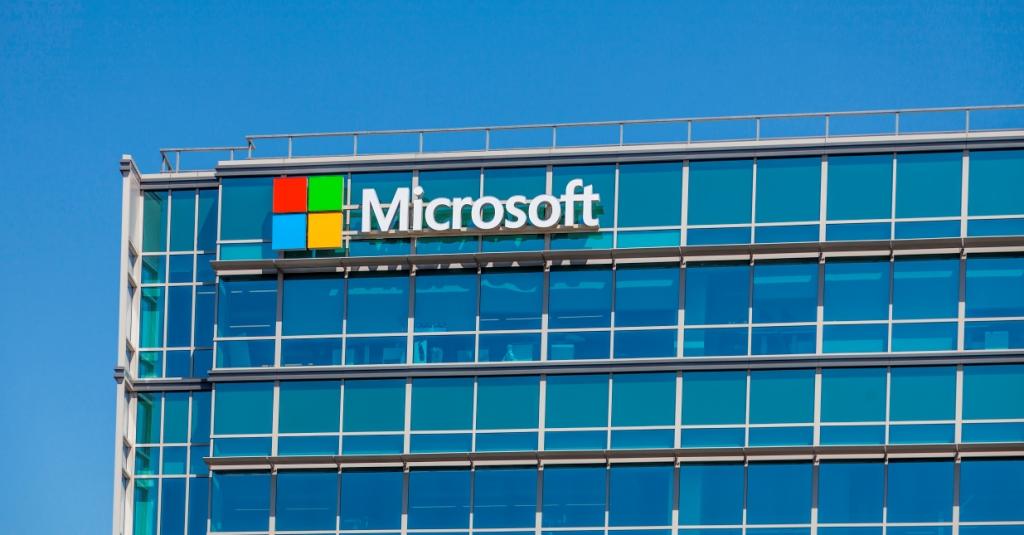
Microsoft has posted another quarter of 50% growth in Azure – with overall revenues slightly down on the previous quarter, at $41.7 billion (£30bn).
The company continues to keep specific revenue figures for Azure to itself, but all three of its primary buckets saw solid uptick. Intelligent Cloud, which covers a majority of Azure but not all of it, saw a year-on-year rise of 23% to $15.1bn, while Productivity and Business Processes rose 15% to $13.6bn.
Of the latter, Office commercial products and cloud services revenue was up 14%, Office consumer products and cloud services revenue went up 5%, while LinkedIn revenue saw a 25% uptick.
The key highlight for Microsoft in the most recent quarter was the launch of additional industry clouds, around finance, manufacturing, and non-profit. As Alysa Taylor, Microsoft CVP business applications and global industry, put it, the offerings ‘aim to empower everyone to deliver value faster, adapt quickly to changing conditions, build for the future, and do all… with security at the core.’
The industry clouds add to the current offerings around retail and healthcare, with the former being given a public preview roadmap with the February announcement. For the latter, Microsoft CEO Satya Nadella confirmed that the pending acquisition of Nuance, as reported by sister publication AI News, will plug in to the healthcare cloud strategy.
The acquisition will “bring our solutions directly into the physician patient loop, which is central to healthcare delivery,” as Nadella put it.
“More broadly across the Microsoft cloud, we are leading with industry and cross-industry solutions and expanding our investments to help organisations use our complete tech stack along with industry specific customisations to improve time to value, increase agility, and lower costs,” said Nadella.
For Microsoft, as this publication has mused passim, its decision not to disclose specific Azure figures is a reasonable one. The wider strategy, similar to Google Cloud – though Alphabet has begun to break out specific figures – is around big ticket deals for both software and infrastructure.
Responding to an analyst question around more ‘strategic’ deals and when they would tip the balance sheet, Nadella elaborated on this wider goal.
“The overall approach to the Microsoft cloud, if you look at the breadth of what any customer may be doing with us… they may be doing hybrid cloud infrastructure with us, they may be for the first time doing tier one workloads on the cloud with us, whether it’s in financials, or retail, or healthcare,” said Nadella.
“They could [also] be deploying their centres of excellence around Power Platform – and Power Platform sits at the intersection of, pretty much, Dynamics, Azure and Teams for example,” he added. “Teams, as I’ve always maintained, is not just about one thing. It’s a platform that drives line of business and business application… inside of a collaboration workflow.
“The other thing I would say that we are now seeing is… that industry level differentiation. Whether it’s in retail, whether it’s in healthcare or in financial services, we feel that we now can bring the power of the entire cloud together in a much more strategic way,” added Nadella.
Earlier this month, analyst firm Transforma Insights named Microsoft as the leading hyperscale cloud provider for enterprise digital transformation. The report took as its base Transforma’s ‘universal rating system’ for vendors, assessed on enterprise requirements across a family of technologies. Against the maximum theoretical score possible, Microsoft scored 52%, compared with 42% and 25% for Amazon Web Services (AWS) and Google respectively.
You can read the full Microsoft earnings report here.

Want to find out more about topics like this from industry thought leaders? The Cloud Transformation Congress, taking place on 13 July 2021, is a virtual event and conference focusing on how to enable digital transformation with the power of cloud.






